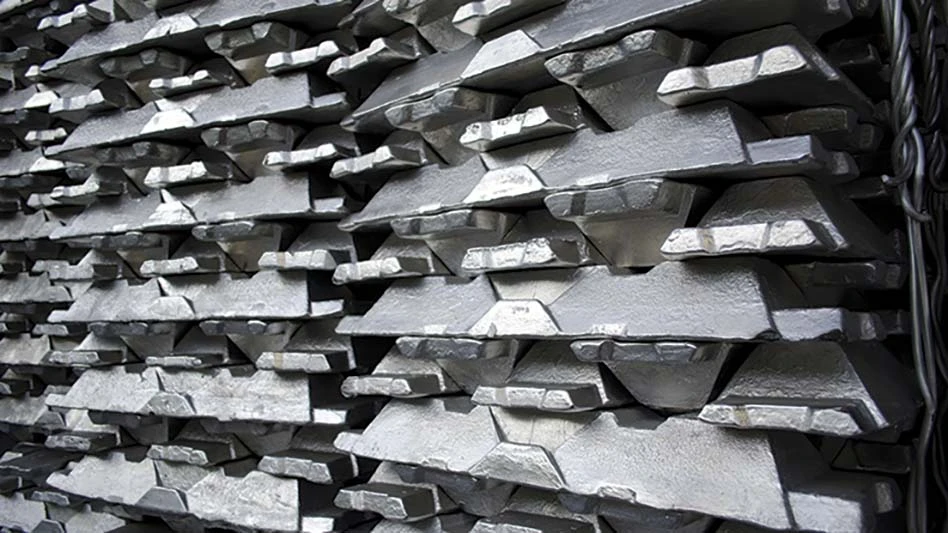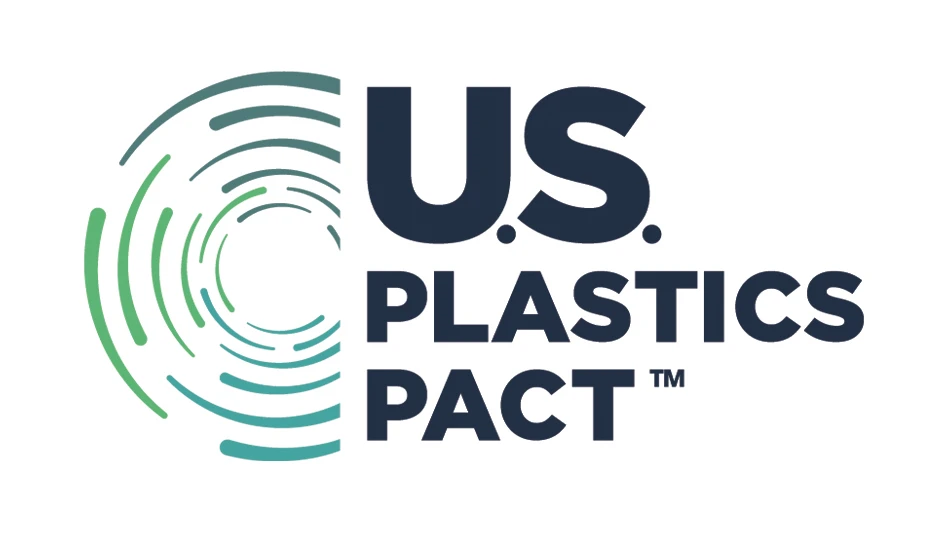There is a Pennsylvania Dutch saying, "The hurrieder I go, the behinder I get." That is especially true when it comes to removing debris after a disaster. Everyone is in an understandable hurry to get the mess out of the way. But, efforts to sort and process recyclable fractions can fall way behind if proper resources are not available.
But capitalism is a great motor for driving cleanup efforts, says Jeremy Lincoln, vice president of National Recycling Services, Erie, Pa.
"People need money and know that there is value to metals. They come out of nowhere and bring materials to the site," he says.
"I’m a scrap man, and the scrap system has a free-enterprise attitude. Where there is a will, there’s a way, and people always find a way to bring in materials."
MATERIAL ISSUES. The metal fraction almost always finds its way to a scrap processor. Wood, trees and landscape debris can be another story.
"Speedy response is what the cities want," says Ryan Hobbs, director of operations at Texas Disposal Systems in Austin. "For them, it is a health and safety issue. They need someone to clean up downed or creaky and rocky trees."
Not all disasters are as sweeping as 2005’s Hurricane Katrina. In Central Texas, ice storms are a frequent mini-disaster that cities face. In addition, the region is blessed or cursed with large oak trees, and ice storms wreak havoc with them. In some cases, Texas Disposal Systems has a contract in place to come to a town’s aid. In others, a municipality will simply ask the company to get there fast and worry about payment later.
Texas Disposal Systems handles about 150,000 cubic yards of material per year.
Lincoln worked as a subcontractor to the Army Corps of Engineers during Katrina and found that everything went as smoothly as could have been hoped.
"We got disaster relief exemptions to move equipment without permits right away," Lincoln recalls. "They came from the Army Corps in Louisiana to us." There was no governmental delay in this case—the permits were faxed up to Pennsylvania.
In fact, the only holdup of any kind National experienced was a slight delay in getting its people registered as workers. Each person had to have health papers and needed to pose for a laminated photo ID.
GETTING WAIVERS. "The decision to grant a permit depends on a variety of factors," says Mark Williams, administrator of the solid waste planning branch of the Mississippi Department of Environmental Quality in Jackson. "The decision to grant a permit is not made in a vacuum." He notes that, beyond environmental considerations, factors like contractual agreements must be considered before permits or waivers are granted.
"First we see who the players are, who will manage the debris in an area," Williams says. "Here in Mississippi—and I think everywhere—there is a desire to see local people get a piece of the pie after a disaster," he continues. That may dictate the process of which companies gets contracts and which get subcontracts.
However, few municipalities anywhere have the ability to go out and grant waivers or permit landfill sites on their own. "They have to coordinate with an agency like our own," Williams says. State agencies look at the capacity requirements, the kinds of debris being handled and the need for debris to be separated. But everyone recognizes the need for speed.
"The states are quick to grant waivers. Otherwise, there would be stuff piled up in the streets," says Lincoln. "We get metals off the street and some needed cash to the people who bring it in," he says.
"Anytime the word gets out that there is a recycling center open, the material will come to you very fast," Lincoln adds.
In fact, after a hurricane blasted through Miami a couple of years ago, aluminum was piled high for an entire city block or more near a group of recycling yards. Locals brought in tons of aluminum—far beyond the local dealers’ ability to process the material.
The Miami dealers called in National Recycling. The company set up a baler in the street, which had long been shut down, and started munching away at the scrap from one end of the street to the other.
"People with pickups were bringing in material trying to earn a little money," Lincoln says. "It was way beyond what anyone anticipated."
Hobbs says Texas Disposal typically leaves the permitting to the city. However, some communities have laws that forbid the city, itself, from coming onto private property. Using a third party like Texas Disposal is a way to skirt that problem.
The company favors using a city transfer station or a spot in the area affected by the disaster.
"States don’t want massive piles of C&D waste laying around," Hobbs notes. "If you are diligent and working hard, they are understanding."
Hobbs notes that his company runs its own transfer station in Georgetown, Texas, north of Austin. "Often, the city will ask if we can extend our operating hours," he says. In recent disasters, Texas Disposal has kept its transfer station operating until 9 p.m. and even has opened on Sundays to help the cleanup efforts.
"We bring grinders to Georgetown. This summer, we have 19,000 cubic yards of brush to process," Hobbs says. The material will be given to area residents free. The remainder will be used as a bulking agent at the company’s compost facility.
HELPING HANDS. The recycling community is a relatively small one, so after a disaster, local recyclers are quick to call companies with C&D experience for help. However, help comes from unexpected places at times.
"We have the ability to do different things in different areas," Williams notes. He says a disaster like Katrina in Mississippi was really two different disasters: a storm surge along the coast that left a huge debris field of natural rubble and a wide swath of wind damage that took down trees and lifted roofs as far away as Columbus and Jackson. That was definitely a situation where consideration and waivers would be made. But there are no guarantees.
"It is not a given that waivers will be granted just because a disaster occurs," Williams says. Typically, the Mississippi DEQ will bring in contract geologists and drillers to evaluate the sites proposed for staging or disposal. "We look at proximity to wetlands and to neighborhoods," he says. The DEQ is mindful of zoning laws. Sometimes a site may be handy, but it is not a good match for other reasons. Sites often operate 24/7, and area residents do not want trucks and grinders disturbing their lives.
Sometimes, however, just getting equipment is a challenge. When the massive F5 tornado demolished Greensburg, Kan., on May 4, the town was left with huge piles of debris to clear away before rebuilding could begin. That’s when Murphy Tractor—a John Deere Construction Equipment dealer with 16 locations in Kansas, Iowa, Missouri and Nebraska—donated a 624J loader equipped with a grapple bucket and an 850J waste handler dozer.
In the Greensburg case, a landfill was specially built for the disaster.
"The devastation in Greensburg is just immense, and this equipment was sorely needed," says Tom Udland, president of Murphy Tractor in Wichita. "We’re glad to be in a position to help our neighbors as they clean up and begin to rebuild their community."
The first task for the 624J was picking up splintered wood from houses and trees for transfer to the landfill, where it could be burned to make room for other debris.
In addition to the 850J and 624J, Murphy Tractor provided a 655C crawler loader to neighboring Stafford County, which also suffered damage from the tornado that devistated Greensburg.
Not everyone understands the capabilities of recycling equipment. For instance, in Katrina’s aftermath, affected towns almost ran out of space before the government allowed full-bore processing of white goods. In fact, the lines of trailers and loader-trailers that were bringing goods to a special site had no more room.
But within three weeks, National Recycling Services had three balers working 24/7. "That lasted about a month," Lincoln says.
Getting human resources is another challenge.
LABOR INTENSIVE. Hobbs says that municipal labor is a good place to find people to augment Texas Disposal’s own personnel. City employees are familiar with dump trucks and loaders.
"Most cities have a public works department or a streets and bridges department that will provide us with labor," Hobbs says. However, the company likes to keep a list of its own people to help out with disasters.
"We’re only interested in having our own people on our equipment," Hobbs says.
Still, the company welcomes the influx of drivers and laborers who can work with city dump trucks. The city’s fleet will augment the grinders and live-floor-equipped, 125-yard trailers that Texas Disposal Systems owns itself.
Some people ask, only partly with tongue in cheek, whether handlers of construction and demolition material can’t wait for the next money-making opportunities.
"I hope there is nothing of the size and scope of Katrina again," Lincoln says. "It’s great for business," he admits, but horrible for the people involved. "Never again, I hope."
The author is a contributing editor based in Cleveland. He can be contacted at curt@curtharler.com.

Explore the August 2007 Issue
Check out more from this issue and find your next story to read.
Latest from Recycling Today
- PCA reports profitable Q1
- British Steel mill subject of UK government intervention
- NRC seeks speakers for October event
- LME identifies Hong Kong warehouses
- Greenville, Mississippi, launches aluminum can recycling program
- Cotton Lives On kicks off 2025 recycling activities
- Georgia-Pacific names president of corrugated business
- Sev.en Global Investments completes acquisitions of Celsa Steel UK, Celsa Nordic





